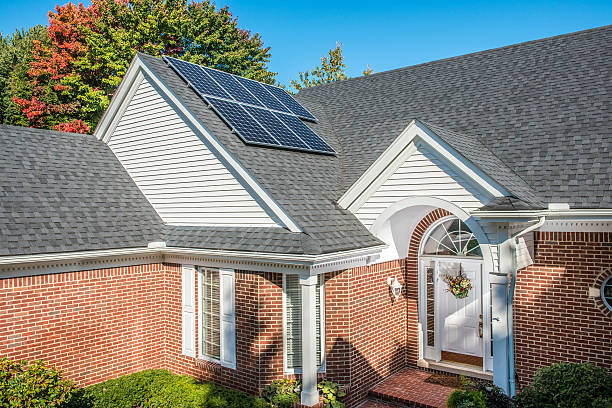Twelve States Pursue Green Home Improvements
As part of President Biden’s ambitious plan for America’s energy future, the U.S. Department of Energy (DOE) is fueling the shift towards energy-efficient homes. New York has become the first state to receive the green light, and a substantial $158 million, to kickstart its energy-efficient home rebate program. This decision propels New York to the forefront of a nationwide effort, buoyed by Biden’s Investing in America Agenda, to commonize energy-efficient appliances, slash household energy expenditures, and invigorate the clean energy workforce.
Multi-State Movement to Enhance Home Efficiency
Following New York, eleven additional states are lining up to access these transformative home energy rebates. The Home Energy Rebate programs catered by the Inflation Reduction Act pride themselves on offering $8.8 billion to states, territories, and Tribes, allowing Americans to enjoy lower energy costs with up to $1 billion in annual energy savings. The programs promise to foster 50,000 new jobs in key sectors such as residential construction and manufacturing, turning energy efficiency into an engine for job creation.
Luminaries Laud the Rebate Programs
U.S. Secretary of Energy Jennifer M. Granholm champions these rebates as dual-purpose: aiding consumers and reducing utility costs while New York’s Governor, Kathy Hochul, envisions a future where affordable clean energy is the norm. Senate Majority Leader Charles E. Schumer (NY) and Senator Kirsten Gillibrand (NY) echo these sentiments, acknowledging the dual environmental and economic benefits of the Inflation Reduction Act. For further updates on the progress of these initiatives in your state, the DOE’s Rebates Dashboard offers real-time tracking.
Alleviating the Financial Burden for Families
These rebate programs extend beyond mere energy efficiency; they are a bridge to greater affordability. Especially focused on aiding low-income households, these rebates can sum up to $14,000 in savings for eligible home upgrades. These upgrades span from cutting-edge heat pumps and electrical panels to insulation and ventilation enhancements. Furthermore, to ensure consumer satisfaction, states are instituting concrete consumer protection plans that promote quality service and fair practices.
New York Sets the Rebate Pace
With its application approval and funding acquisition, New York aligns itself with an imminent rollout of its rebates program. This initial launch will cater to low-income homeowners, with a broader inclusion on the horizon.
A Collaborative Approach to Consumer Engagement
DOE is intensely focusing on outreach, educating various stakeholders from contractors to manufacturers, about the rebates program to encourage professional training and certification. This aims to optimize consumer experience and ensure widespread adoption of electrification projects. Additionally, the Training for Residential Energy Contractor (TREC) Program is set to impart $200 million for the training of residential energy efficiency and electrification contractors.
The Ongoing Journey of State Applications
As states await DOE’s review and approval of their applications, they stand on the threshold of introducing these rebate programs to their constituents. DOE is actively supporting states, territories, and Tribes with the necessary guidance and resources to effectively design and implement their unique rebate programs.
Immediate Opportunities to Save Energy and Money
President Biden’s Investing in America agenda is already empowering homeowners to harness the benefits of energy savings. Encouraging home energy audits and offering tax incentives for an array of clean energy investments, the administration is underscoring its commitment to an efficient, sustainable, and money-saving residential energy landscape.

























